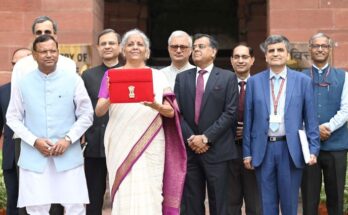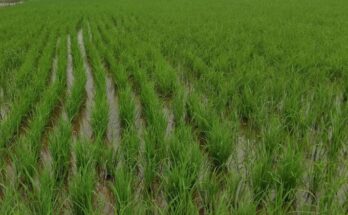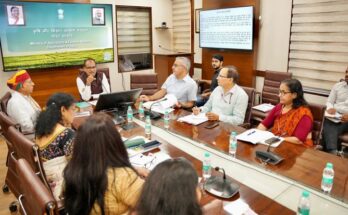Steering Committee has been constituted comprising of experts from various ministries of Government of India, fields, domain, educational and research institutes, private tech players and other stakeholders for advising on various initiatives that are being undertaken, especially India Digital Ecosystem in Agriculture (IDEA) and the proposed AgriStack, including implementation experiences across different fields and sectors, Union Minister of Agriculture and Farmers Welfare, Narendra Singh Tomar said in a written reply in the Lok Sabha on Tuesday.
Further, Ministry of Agriculture and Farmers Welfare had organised a Digital Agriculture-Stakeholder Consultation meet on July 11, 2022 in New Delhi, to create a vision for public-private partnership (PPP) for the delivery of digital and hi-tech services to farmers with the involvement of public sector research and extension institutions along with private agritech players and stakeholders of agri value chain, the minister said.
The Government of India has made an announcement in the Union Budget 2022 regarding the setting up of a fund routed through NABARD (National Bank for Agriculture and Rural Development) under a co-investment model to finance startups in the agritech space.
Application of drones in agriculture
Looking into the unique advantages of drone technologies in agriculture, Department of Agriculture & Farmers Welfare has released the Standard Operating Procedures (SOPs) for use of drones in pesticide and nutrient application in the public domain in December 2021, which provide concise instructions for effective and safe operations of drones. In order to make this technology affordable to the farmers and other stakeholders of this sector, financial assistance @ 100 per cent for the purchase of agricultural drones and their attachments (actual cost of expenditure and its attachments or Rs. 10 lakhs, whichever is lower) together with the contingent expenditure is extended under Sub-Mission on Agricultural Mechanization (SMAM) to the Farm Machinery Training & Testing Institutes of Indian Council of Agricultural Research (ICAR), Krishi Vigyan Kendras (KVK) and State Agricultural Universities (SAUs) and @ 75 per cent to FPOs (farmer producer organisations) for its demonstration on the farmers’ fields, the agriculture minister inform the lower house of the Indian parliament.
You may also like to read: New age tech entrepreneurs disrupting agriculture ecosystem in India
In order to provide agricultural services through drone application, financial assistance @ 40 per cent of the basic cost of drone and its attachments or Rs. 4 lakhs, whichever is less also provided for drone purchase by existing and new custom hiring centres (CHCs) and also general category farmers and @ 50 per cent of the basic cost of drone and its attachments or Rs. 5 lakhs for SC/ST/women/small and marginal farmers and the agriculture graduates, Tomar further said.
Agri-Entrepreneurship Development
A component called ‘Innovation and Agri-Entrepreneurship Development’ has been launched under Rashtriya Krishi Vikas Yojana (RKVY-RAFTAAR) in 2018-19 with the objective of promoting innovation and agri-entrepreneurship by providing financial support and nurturing the incubation ecosystem. Under this programme, startups are encouraged to use innovative technologies to resolve challenges faced in agriculture and allied sectors. A total of 799 startups have been selected in various areas of agriculture and allied sectors under this programme for providing financial support through knowledge partners and agribusiness incubators appointed by the department for implementation of this programme, the minister informed.
National Agriculture Innovation Fund
Indian Council of Agricultural Research (ICAR) has been supporting agri-based startups under the project called National Agriculture Innovation Fund (NAIF) initiated in 2016-2017. It has two components viz. (I) Innovation Fund; (II) Incubation Fund and National Coordinating Unit (NCU).
Innovation Fund
10 Zonal Technology Management Units and 89 Institute, Technology Management Units (ITMUs) established in 99 ICAR institutes provide a single-window mechanism to manage innovations, showcase intellectual assets, and pursue matters related to intellectual property (IP) management and transfer and commercialisation of technologies in these institutes.
Incubation Fund
Agri-Business Incubator Centres (ABICs) are set up to speed up the delivery of the new technologies to stakeholders. The ABICs are the nodal points to provide the desired link for agricultural research & development (R&D) institutions for incubation and commercialisation of the validated technologies. So far, 50 Agri-Business Incubation Centres have been established and are operational in the ICAR network under the NAIF scheme.




